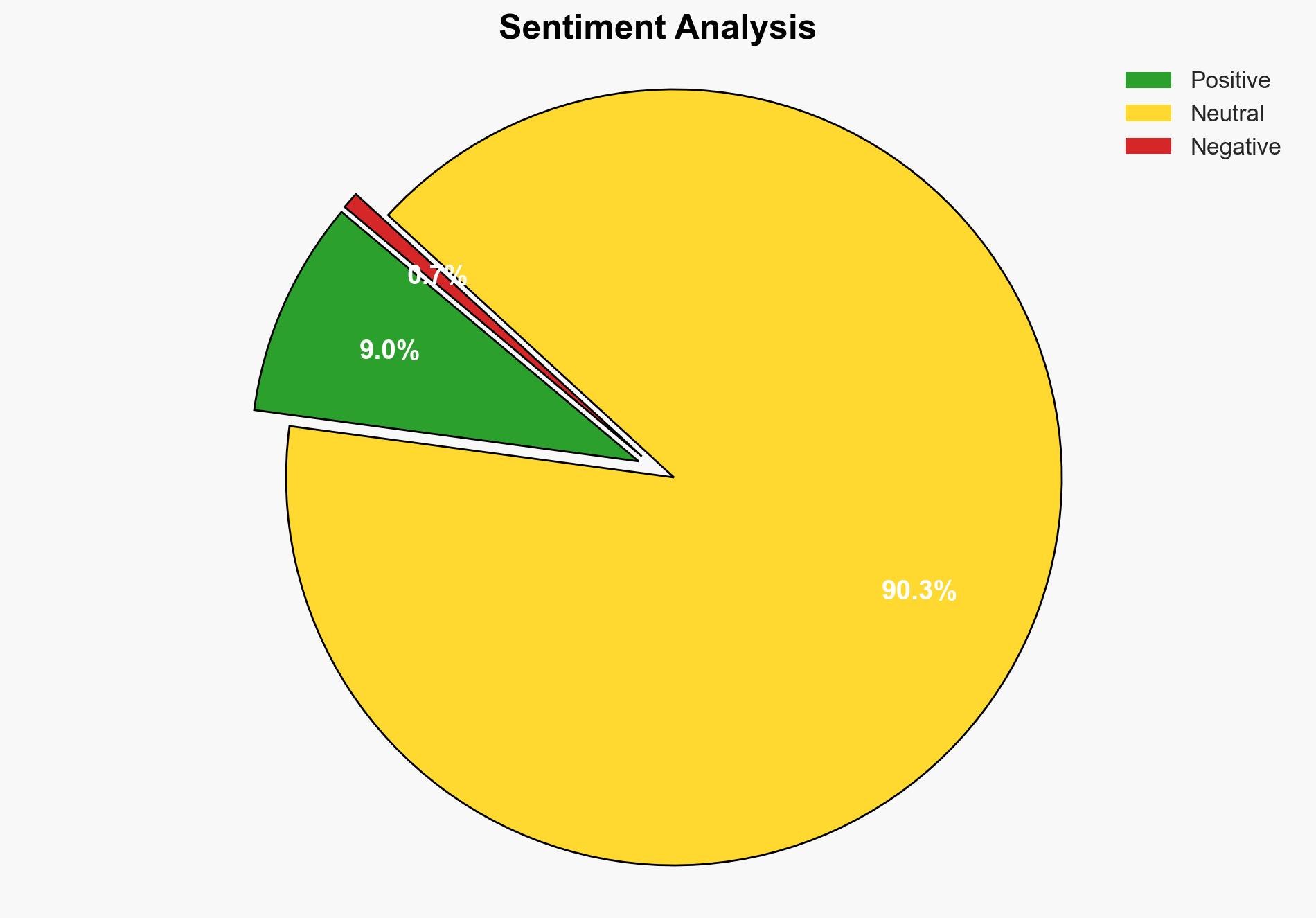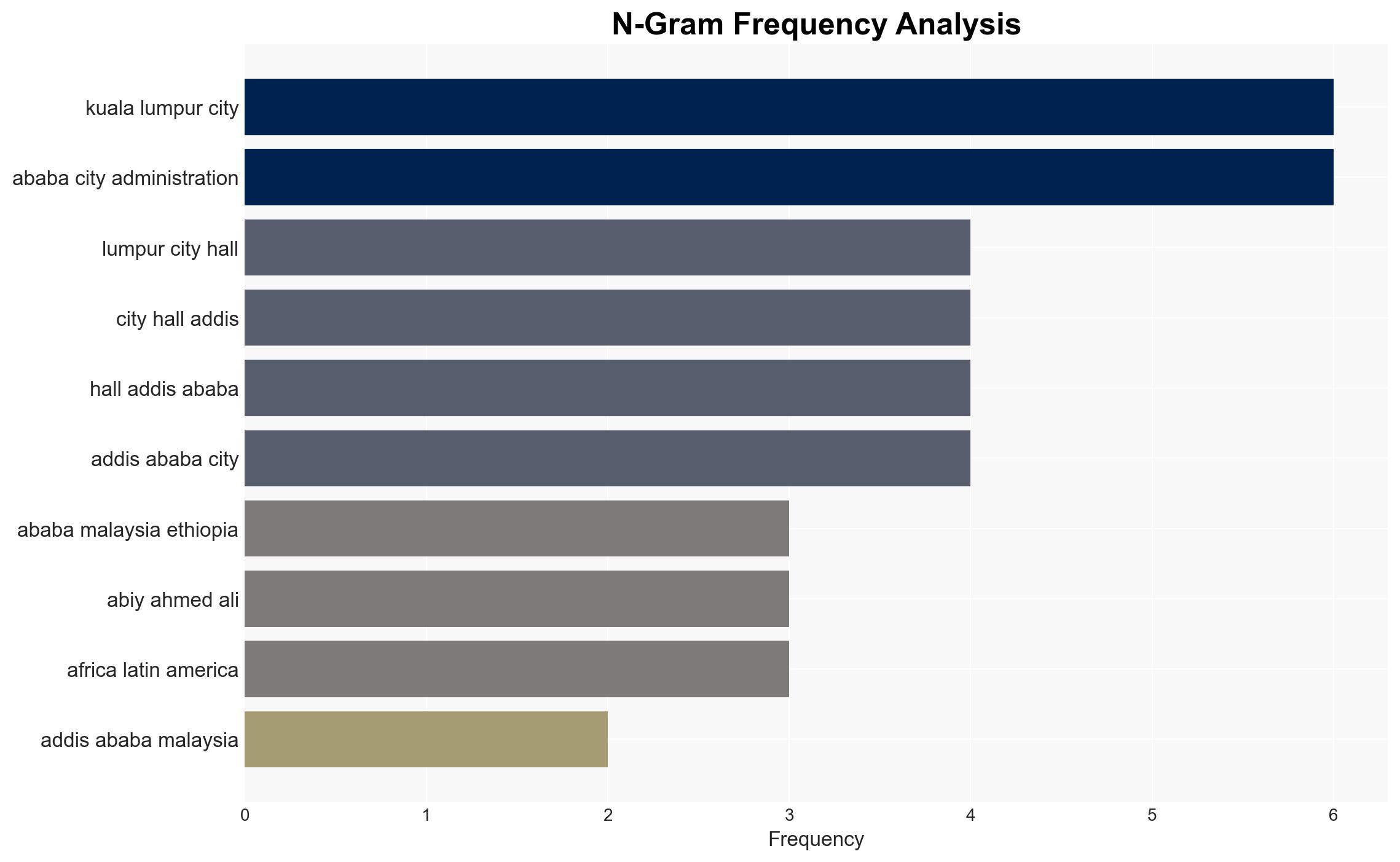Malaysia Ethiopia ink MoU to boost cooperation in air services health and tourism – The Star Online
Published on: 2025-11-20
AI-powered OSINT brief from verified open sources. Automated NLP signal extraction with human verification. See our Methodology and Why WorldWideWatchers.
Intelligence Report: Malaysia-Ethiopia MoU on Air Services, Health, and Tourism
1. BLUF (Bottom Line Up Front)
The signing of the Memorandum of Understanding (MoU) between Malaysia and Ethiopia marks a strategic effort to enhance bilateral relations, focusing on air services, health, and tourism. The most supported hypothesis is that this MoU is part of a broader strategy by Malaysia to strengthen its economic and diplomatic presence in Africa, leveraging Ethiopia’s strategic position in East Africa. Confidence Level: Moderate. Recommended action includes monitoring the implementation of the MoU and assessing its impact on regional dynamics and Malaysia’s foreign policy objectives.
2. Competing Hypotheses
Hypothesis 1: The MoU is primarily a strategic move by Malaysia to expand its influence in Africa, using Ethiopia as a gateway to the continent.
Hypothesis 2: The MoU is a routine diplomatic engagement with limited strategic significance, focusing on specific sectors without broader geopolitical implications.
Hypothesis 1 is more likely due to Malaysia’s stated interest in exploring new markets in Africa and Latin America, and Ethiopia’s role as a regional hub in East Africa. The presence of high-level officials at the signing ceremony suggests a significant diplomatic commitment.
3. Key Assumptions and Red Flags
Assumptions include the belief that both countries have the capacity and political will to implement the MoU effectively. A red flag is the potential for overestimation of mutual benefits without addressing underlying economic and political challenges. There is also a risk of misalignment in priorities between the two countries.
4. Implications and Strategic Risks
The MoU could lead to increased economic cooperation and investment, potentially enhancing regional stability. However, there is a risk of political backlash if perceived as neo-colonialism or if local stakeholders are not adequately engaged. Economic competition from other nations in the region could also pose a challenge.
5. Recommendations and Outlook
- Monitor the implementation of the MoU for alignment with Malaysia’s broader foreign policy goals.
- Engage with local stakeholders in Ethiopia to ensure mutual benefits and mitigate backlash.
- Best-case scenario: Strengthened bilateral ties lead to increased trade and investment.
- Worst-case scenario: MoU fails to deliver tangible benefits, leading to diplomatic strain.
- Most-likely scenario: Incremental progress in targeted sectors with potential for broader cooperation.
6. Key Individuals and Entities
Datuk Seri Anwar Ibrahim (Prime Minister of Malaysia), Dr. Abiy Ahmed Ali (Prime Minister of Ethiopia), Kuala Lumpur City Hall, Addis Ababa City Administration.
7. Thematic Tags
Regional Focus, Regional Focus: Africa, Southeast Asia
Structured Analytic Techniques Applied
- Causal Layered Analysis (CLA): Analyze events across surface happenings, systems, worldviews, and myths.
- Cross-Impact Simulation: Model ripple effects across neighboring states, conflicts, or economic dependencies.
- Scenario Generation: Explore divergent futures under varying assumptions to identify plausible paths.
- Network Influence Mapping: Map influence relationships to assess actor impact.
Explore more:
Regional Focus Briefs ·
Daily Summary ·
Support us





